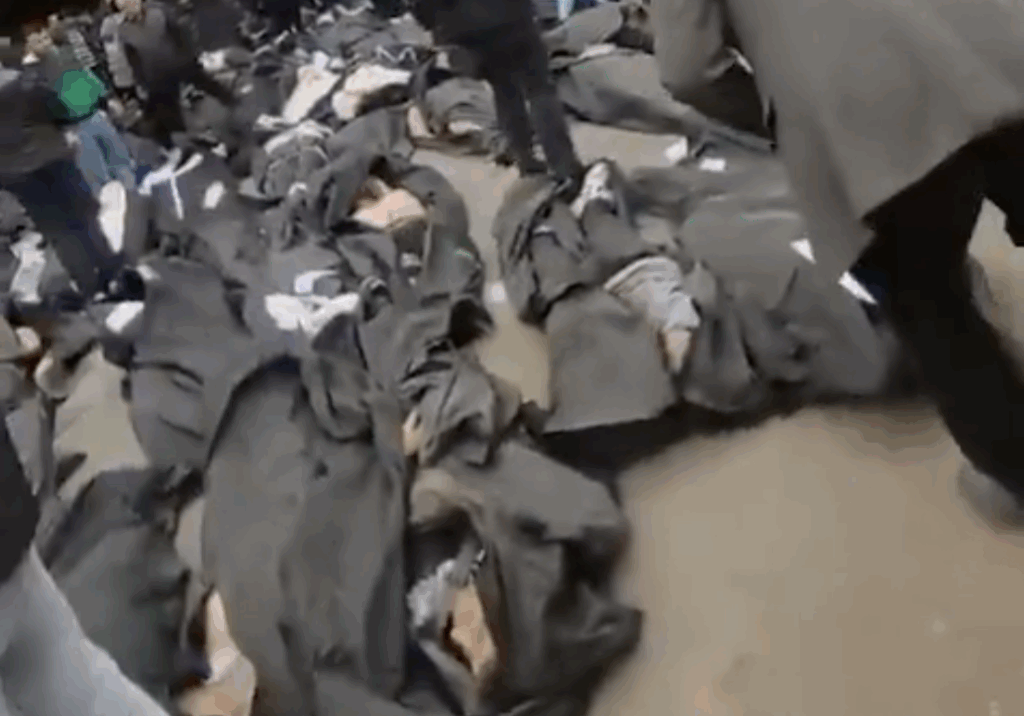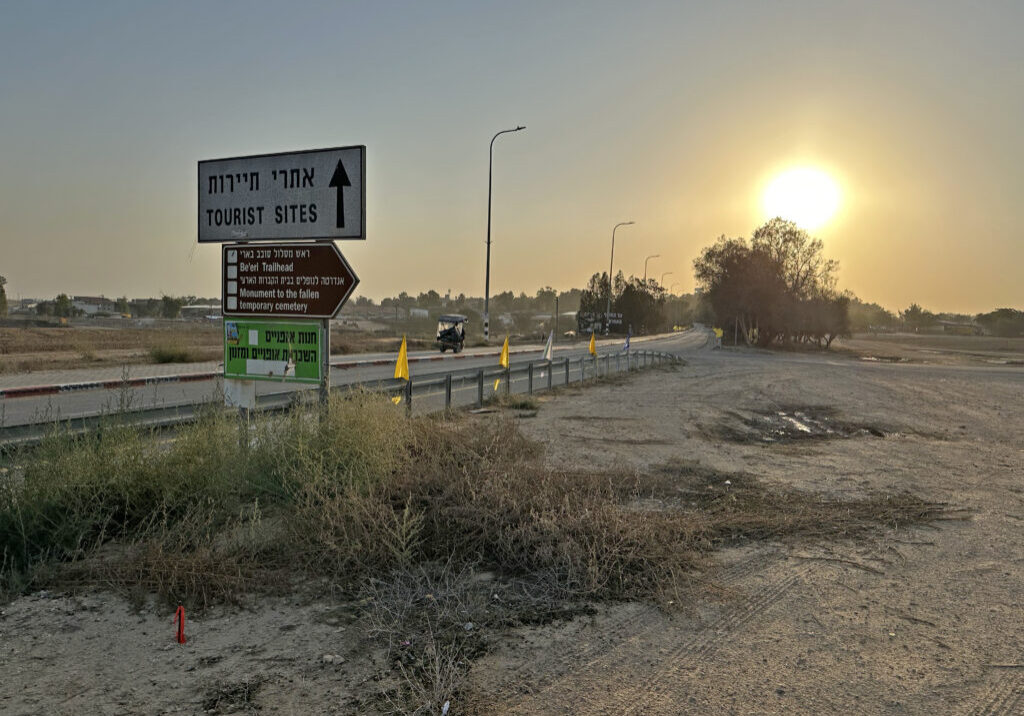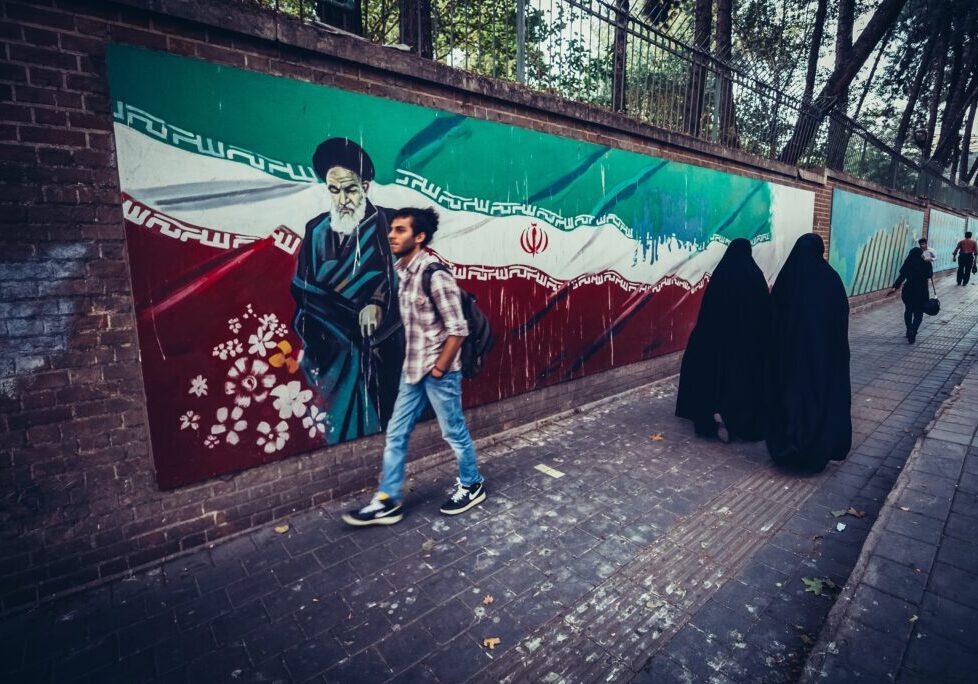Australia/Israel Review
Remnant of resistance
Sep 19, 2025 | Oved Lobel
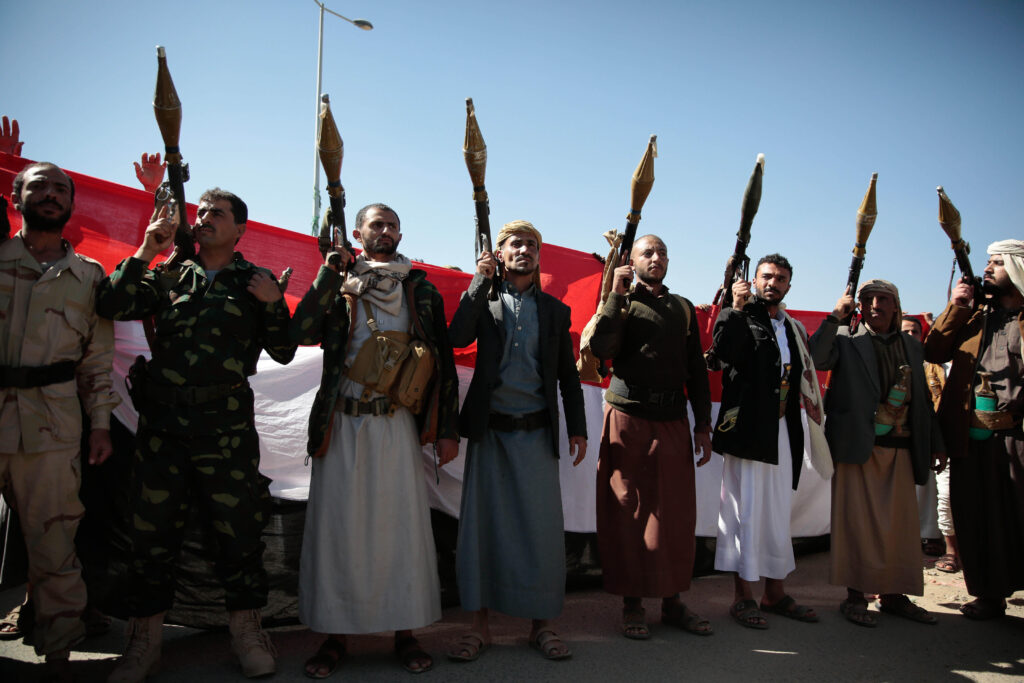
The Houthi problem
On August 22, Ansar Allah, more commonly referred to as the Houthis, reportedly launched a ballistic missile at Israel containing cluster munitions, the first time such a weapon has been fired from Yemen at Israel.
Israel launched one of its regular large-scale retaliations against Houthi-controlled infrastructure, with about a dozen jets dropping 35 munitions on four targets, including two power stations, a military compound and a fuel depot. One of the power stations had also been targeted days earlier, reportedly by the Israeli navy.
The Houthis will easily shrug off these strikes, as they have multiple times in the past two years.
But then, on Aug. 29, Israel wiped out much of Ansar Allah’s civilian government facade, including Prime Minister Ahmed al-Rahawi and the ministers of foreign affairs, electricity, transportation, public works, justice, human rights, youth and sports, local administration and information.
The IDF alleged as many as 20 senior Houthi officials were killed, including the nominal “chief of military operations,” and possibly the Defence Minister.
While most or perhaps all of these figures played little role in actual administration and were not a core element of Ansar Allah, their removal could still cause disruption and distraction. And as Israeli intelligence penetration increases, so will the value of the other leaders that may be targeted in future.
Assassinations of this sort are a more promising avenue for retaliation than hitting the same infrastructure targets repeatedly, though they still won’t remove the threat or halt Houthi fire, which is overseen directly by Iran’s Islamic Revolutionary Guard Corps–Qods Force (IRGC-QF).
Even killing the overall leader, Abdul-Malik al-Houthi, as well as his male relatives involved in the leadership, would not severely impact the group, notwithstanding the fact that, until now, Ansar Allah’s local leadership has revolved entirely around that one family. The true executive power in Ansar Allah lies with the IRGC-QF official who serves as the Houthi’s “Jihad Assistant” and his Hezbollah deputy on the Houthi “Jihad Council”. Moreover, as with Hamas, Palestinian Islamic Jihad, Hezbollah and other terrorist and insurgent organisations, leadership decapitation has little, if any, noticeable long-term or even short-term effect.
Additionally, the recurring strikes against Houthi-controlled air and sea ports, power stations, oil terminals and fuel depots by Israel – and, during Operation Rough Rider from March-May, by the US – have not succeeded in preventing the Houthis from receiving Iranian weapons shipments. On July 17, US Central Command announced that the Yemeni “National Resistance Forces” of Tareq Saleh “seized over 750 tons of munitions and hardware to include hundreds of advanced cruise, anti-ship, and anti-aircraft missiles, warheads and seekers, components as well as hundreds of drone engines, air defense equipment, radar systems, and communications equipment.”
There are multiple routes for Iranian weapons shipments, including overland via Oman, and repeated bombings of Yemen’s primary ports have not halted and will not halt arms shipments, which are still pouring into Yemen. Because of this, intensive bombing campaigns by the US, sometimes joined by the UK, since January 2024, aimed at degrading Houthi military capacity, have not had any substantial impact despite the number of missiles, drones and launchers allegedly destroyed.
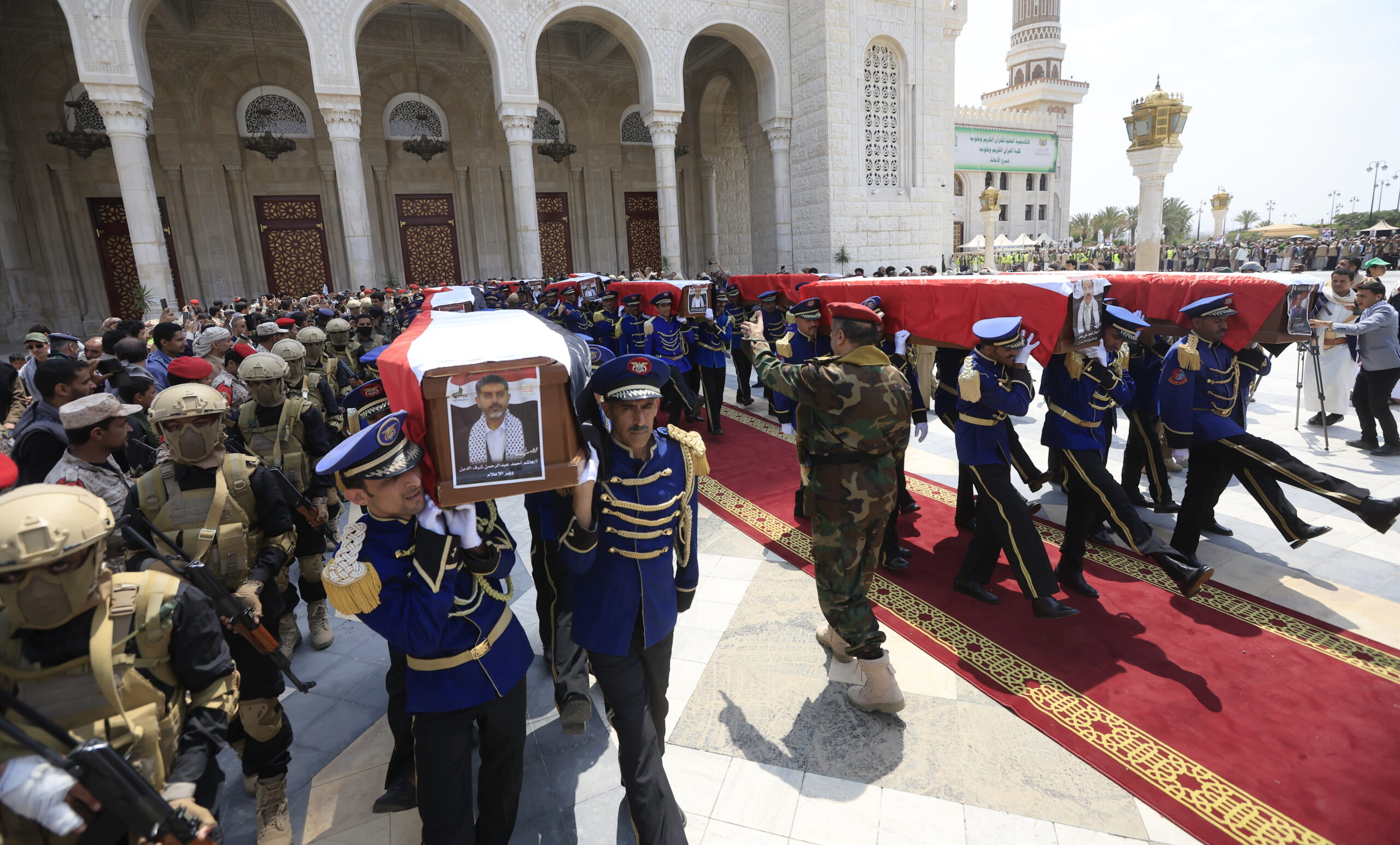
Honour guard carry the coffins of senior Houthi officials who were killed in recent Israeli strikes, during a funeral in Sana’a, Yemen, September 1, 2025 (Image: EPA/Yahya Arhab)
That the Houthis seem impervious to military pressure should not be surprising. Established as an inchoate organ of the IRGC in the 1980s, they survived their long jihad against the Yemeni regime beginning in 2004, despite the death of their founder, and then several years of war and a massive bombing campaign by Saudi Arabia and the UAE and their respective mercenaries and local proxies. There was little doubt that renewed airstrikes, however intense, by the US, UK or Israel would never truly threaten or deter the group.
Of course, Houthi salvos against Israel are generally ineffective; however, they still disrupt daily life and deplete vital air defence interceptors, and the risk of them causing damage and casualties, as they did on July 19, 2024, and May 4 this year, remains. Since the end of the Israeli-Hamas ceasefire in late March, the Houthis have launched about 70 ballistic missiles and more than 20 drones, almost all of them intercepted or failing to reach Israel.
With the rest of Iran’s so-called “axis of resistance” neutered by Israel since 2024, and Iran’s own missile arsenal decimated or depleted during Operation Rising Lion in June, the Houthis, however ineffectual they might be, are the last active front the Iranian “Axis of Resistance” has to demonstrate involvement in the war it launched against Israel following Hamas’ invasion on October 7, 2023.
Part of that involvement is not just projectiles launched at Israel, but attacks on international shipping, which have increased in recent months and which the Houthis say will continue until Israel ends the war in Gaza. Since the end of Operation Rough Rider in early May, there has been no international response to these attacks.
Ansar Allah, as the Yemeni outgrowth of Ayatollah Ruhollah Khomeini’s Islamic Revolution, exists to destroy Israel and kill Jews, with whom adherents of that Revolution believe Islam is locked in a perpetual, existential war. Hussein al-Houthi, Ansar Allah’s founder, believed the al-Qaeda attacks against the US on September 11, 2001, were actually a ploy by Jews and the United States to unleash a war on Islam. His group became known as the Ashab al-Shiar, or “Followers of the Slogan” – the slogan being “God is Great! Death to America! Death to Israel! A Curse Upon the Jews! Victory to Islam!” This remains the Houthi call today, an augmentation of the Islamic Revolution’s own in Iran.
A fundamental element of Houthi activity since their inception has been to cleanse Yemen of its few remaining Jews. This process began in the early 2000s and ended successfully in 2021, although the Houthis continue holding and torturing Salem Levi Marhabi, the last Jew in Yemen, as a hostage. While the Houthis reportedly kidnapped him in 2016 in part to trade for the departure of the rest of Yemen’s Jews, they did not release him after the ethnic cleansing was completed.
Since at least 2017, the Houthis had been publicly saying they would join the next war against Israel, began openly threatening to attack Israel in late 2019 and reportedly tried to join the war in 2021 after Israel launched Operation Guardians of the Wall.
That year, the Houthis started recruiting across Yemen by telling fighters they are joining to “liberate the Al-Aqsa Mosque,” with senior Houthi official Mohammed al-Bukhaiti telling recruits that “liberating Palestine” was as much a commandment from God as conquering Yemen.
Houthi Political Bureau member Abd Al-Wahhab Al-Mahbashi summed up the core of the Houthi world view in 2020:
[All Muslims] should… unite in a rank that pits us directly against our enemies, the Jews… The only path is the path to Jerusalem, the path of Jihad against the Jews. This is the path that will sort out all the other movements and guide them in one direction — the direction of enmity towards the Jews. Enmity towards them is the number one criterion for [Muslims]. Tell me who your enemy is and I will tell you who you are. If the Jews are your number one enemy, then you are a [Muslim].
For Ansar Allah, launching projectiles at Israel from Yemen is not merely a symbolic show of support for Hamas, but their entire raison d’être – the war against the Jews. The Houthis therefore cannot be deterred from attacking Israel, since this is their overarching purpose. No number of strikes, of whatever intensity and no matter the target, will change that.
Only with the eventual destruction or collapse of the regime ruling Iran will the Islamic Revolution and its regional organs truly disappear. Until that happens, the Houthis will continue firing whatever they can, even if only one in every 100 missiles or drones causes damage or casualties. This is assuming that there is no permanent end to the war with Hamas in the near future, which would at least temporarily halt Houthi attacks.
For Israel, Ansar Allah remains more of an irritant than a genuine threat. Because a strategic ground offensive by Saudi and UAE proxies coordinated with Israeli or US airpower against Houthi control is not currently on the cards, Israel will continue to manage the situation with retaliation against infrastructure and occasional assassinations when the intelligence and opportunity present themselves. This won’t stop the Houthis firing, but the new normal of incessant and mostly ineffective Houthi attacks is strategically tolerable.


